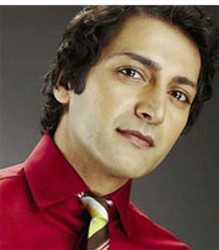NEW YORK (Reuters) – A dinner party in an elegant New York apartment goes terribly wrong in Disgraced, the Pulitzer Prize-winning play about ambition, race, religion and identity that opened on Broadway.
The five-character drama by writer Ayad Akhtar that began its run on Thursday night at the Lyceum Theatre after an earlier staging in New York in 2012 examines prejudices and relationships in post-September 11 America.
The Hollywood Reporter described it a “stimulating, sobering work from a distinctive new American playwright,” and the trade journal Variety found it “an intellectually engaging play on a politically provocative topic.”
With recent events in the Middle East and elsewhere, the New York Times said Disgraced is more relevant today than when it was written two years ago.

“The rise of the so-called Islamic State, and the news that radicalized Muslims from Europe and the United States have joined the conflict raging in Syria and Iraq, brings an even keener edge to Mr Akhtar’s engrossing drama,” it added.
Actor Hari Dhillon reprises his role from the London stage production for his Broadway debut as Amir, the successful, ambitious Muslim-American lawyer who claims to be Indian rather than Pakistani and has easily assimilated into corporate America.
Gretchen Mol (Boardwalk Empire, 3:10 to Yuma) is his beautiful, liberal artist wife, Emily, who finds inspiration in Islamic art; and Josh Radnor, best known for his role on the TV comedy “How I Met Your Mother” is Isaac, the smug Jewish museum curator who is including Emily’s work in his latest show.
Karen Pittman, the only actor from the earlier New York production in the cast, is Isaac’s self-assured, African-American lawyer wife who is a colleague of Amir’s, and Danny Ashok (Four Lions) plays his young nephew Abe.
Amir has distanced himself from his religion and is positioning himself for a promotion at his firm, but at the urging of his wife and nephew he consults on a case involving an imam accused of being involved in terrorism, a move that has repercussions on his career.
Months later, when the two power couples get together at Amir’s apartment to celebrate Emily’s inclusion in Isaac’s exhibition, it makes for a volatile mix that increases with each cocktail, explodes over the salad course, and gets progressively worse as the evening goes on.
The New York Times had good things to say about the entire cast in the 90-minute play that runs without an intermission, but reserved its highest praise for Dhillon for the “coiled intensity” of his performance.
“Flickering underneath his cool, crisp exterior is a pilot light of resentment that holds the key to the play’s eventually devastating denouement,” it said.
Variety was also impressed with Dhillon’s performance, saying his confident interpretation of Amir was less vulnerable than in the earlier production.
“It’s a more classical approach, a study of a powerful man destroyed by hubris. The kind of tragic hero you don’t often see nowadays,” the publication added.




